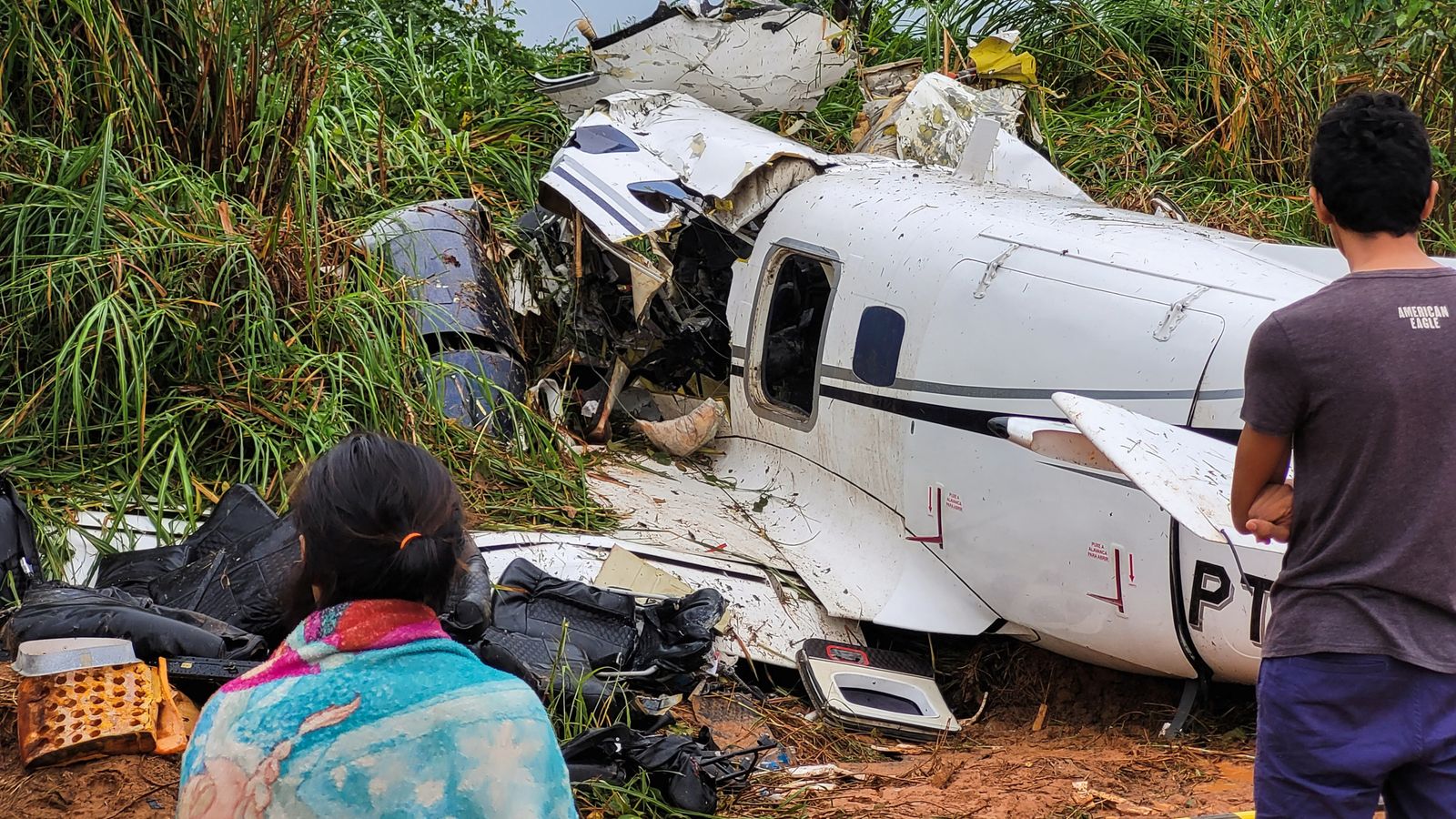Investigation and Response: Brazil Plane Crash 2024

The crash of the Brazilian aircraft in 2024 triggered an immediate and multifaceted response, involving a coordinated effort from emergency services, investigative agencies, and the aviation community. The primary focus was on rescue and recovery operations, followed by a comprehensive investigation to determine the cause of the accident and prevent future occurrences.
Emergency Response and Investigation Initiation
The initial response to the crash involved the swift deployment of emergency services, including firefighters, paramedics, and law enforcement. The primary objectives were to secure the crash site, provide medical assistance to survivors, and recover the remains of those who perished. Simultaneously, the Brazilian authorities initiated an investigation into the cause of the accident. This investigation was led by the Brazilian National Civil Aviation Agency (ANAC), in collaboration with the National Transportation Safety Board (NTSB) and other international aviation safety organizations.
Investigation Process and Evidence Collection
The investigation process involved a multi-pronged approach, encompassing the collection and analysis of various types of evidence.
- The wreckage of the aircraft was carefully examined by investigators, focusing on identifying potential mechanical failures, structural damage, or any signs of pre-crash events. This examination involved detailed documentation, photography, and the removal of critical components for further analysis.
- The flight data recorder (FDR) and cockpit voice recorder (CVR) were recovered from the crash site. These devices provided valuable insights into the aircraft’s performance, the crew’s actions, and the environmental conditions leading up to the accident. The data was analyzed by experts to reconstruct the flight path, identify any anomalies, and determine the sequence of events leading to the crash.
- Interviews with air traffic controllers, witnesses, and surviving passengers were conducted to gather information about the flight conditions, any unusual events observed, and the crew’s communications before the crash. This information was crucial for piecing together the timeline of events and understanding the crew’s response to the situation.
- Meteorological data, including weather reports, radar information, and satellite imagery, was reviewed to assess the prevailing weather conditions at the time of the accident. This information was essential for determining whether weather played a role in the crash.
- The aircraft’s maintenance records, pilot training records, and crew schedules were scrutinized to identify any potential contributing factors related to the aircraft’s condition, the crew’s qualifications, or any fatigue-related issues.
Impact and Aftermath

The Brazil plane crash of 2024 sent shockwaves through the nation and beyond, leaving an indelible mark on the families of the victims, the aviation industry, and the public consciousness. The immediate aftermath was characterized by grief, confusion, and a desperate search for answers.
Impact on Families and the Community, Brazil plane crash 2024
The crash had a devastating impact on the families of the victims, leaving them reeling from the sudden and tragic loss of loved ones. Many families were plunged into a deep abyss of grief, struggling to cope with the unimaginable pain of their loss. The community rallied around the bereaved families, offering support and condolences. Memorial services were held to honor the victims, providing a space for mourning and remembrance.
Long-Term Consequences
The crash had far-reaching consequences for the aviation industry and safety regulations.
- The accident sparked a thorough investigation into the cause of the crash, leading to a review of safety protocols and procedures. This included an examination of the aircraft’s maintenance records, the pilot’s training and experience, and the weather conditions at the time of the crash.
- The investigation also prompted a re-evaluation of air traffic control systems and procedures, with a focus on enhancing communication and coordination between air traffic controllers and pilots. The goal was to prevent similar accidents in the future.
- The crash had a significant impact on the airline industry, particularly on the reputation of the airline involved. The airline faced scrutiny and criticism, and its stock price plummeted. Passengers may have become more hesitant to fly with the airline, leading to a decline in revenue.
Media Coverage and Public Response
The Brazil plane crash was widely reported by the media, both domestically and internationally. News outlets provided extensive coverage of the crash, including updates on the investigation, the identities of the victims, and the impact on the families.
- The media coverage played a crucial role in informing the public about the crash and its aftermath, but it also sparked debates about aviation safety, airline accountability, and the role of the government in regulating the industry.
- The public response to the crash was one of shock, grief, and anger. Many people expressed their condolences to the families of the victims and called for a thorough investigation into the cause of the crash. There was also a demand for greater transparency and accountability from the airline and the government.
Brazil plane crash 2024 – The recent Brazil plane crash in 2024 has brought back tragic memories of similar incidents, reminding us of the fragility of air travel. A similar incident, the plane crash in Sao Paulo , serves as a stark reminder of the importance of aviation safety.
The Brazil plane crash in 2024, however, presents a unique set of circumstances that investigators are currently examining.
The recent plane crash in Brazil in 2024 has sparked widespread concern and scrutiny. While the investigation continues, the tragedy serves as a stark reminder of the fragility of life and the importance of safety protocols. As the nation grapples with this devastating event, the cbs vice presidential debate will undoubtedly be a topic of discussion, as candidates will likely address the need for stronger transportation regulations and infrastructure improvements in the wake of such a tragedy.
